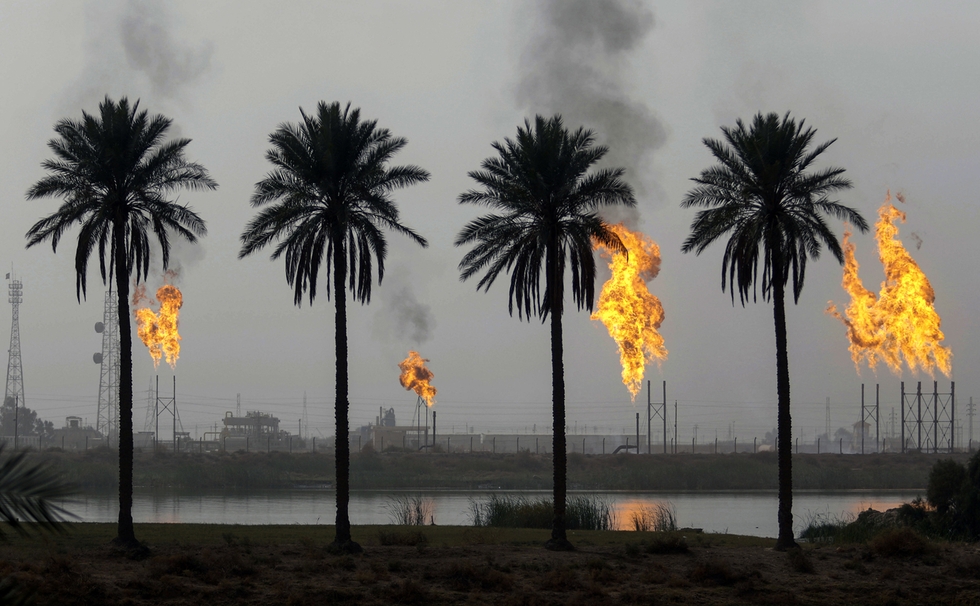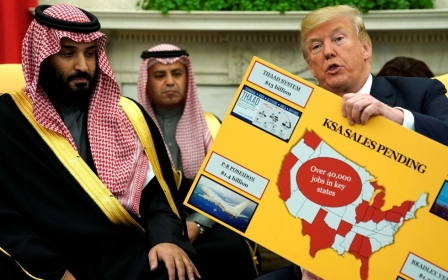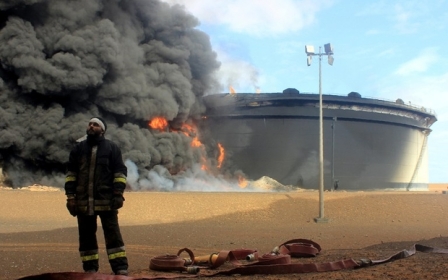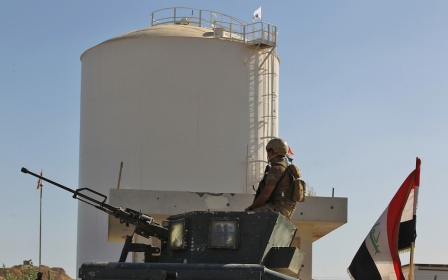ANALYSIS: Middle East oil producers benefit from Venezuela's economic woes

Venezuela’s economic woes just got even worse, but that's likely a blessing for the oil-rich nations of the Middle East.
Last week the Latin American country, which is also rich in oil resources, got slapped with US sanctions. It’s just the latest problem for the socialist government and will make it even harder for the country to pump oil.
Venezuela's oil problems are set to give a helping hand to the Middle East, especially those countries that are members of the Organization of the Petroleum Exporting Countries (OPEC), because a drop off from Venezuela’s output allows energy-rich Middle East countries to increase their production rates.
One consistent operating principle of OPEC is that its member countries are expected to produce oil within an allotted quota. That is to say, they agree to produce no more than a specified volume of oil on a daily basis.
Cheating OPEC
The idea is that the restricted supply of oil from the members will help keep the global price of crude oil at elevated levels. Moderately higher prices help all the member countries, many of which rely heavily on oil revenue to finance their economies.
However, as with all cartels, holding every party to their commitment is more than a little tricky. That's because each member country has an incentive to cheat: to produce more oil than they are allowed under the terms of the latest OPEC production agreements.
“Fellow OPEC members are only too happy to cheat at Venezuela’s expense,” says Adam Johnson, author of the Bullseye Brief newsletter and a former professional oil trader.
Specifically, because Venezuela’s oil output has dropped by about 600,000 barrels a day since 2016, it isn’t getting the revenue from that energy.
Fellow OPEC members are only too happy to cheat at Venezuela’s expense
- Adam Johnson, Bullseye Brief author
But OPEC member countries as well as other oil-rich nations can increase their output and see extra money flow into their economies. We can guess intuitively that there is cheating happening because even the past few months of drops in Venezuelan output hasn't resulted in a major oil price rally.
Higher prices and increased volume for Middle East oil producers is a windfall. The region controls 40 percent of global oil output and 60 percent of the oil traded internationally, according to the US Energy Information Administration.
For instance, Saudi Arabia, which is the largest oil producer in the region, relies on oil revenue for 87 percent of the government budget, according to data from the CIA World FactBook.
The country produces almost 10 million barrels a day of oil, according to OPEC.
Iraq, which is still recovering from war, produces 4.4 million barrels a day, while Iran pumps 3.8 million, and the UAE churns out 2.7 million. As with the Saudi figures, the data is from OPEC’s March-dated report.
Diving deep into Venezuela’s woes
The US sanctions, announced mid-March, are part of a longer-term effort by the US to isolate the government headed by socialist President Nicolas Maduro.
Under his watch, the Venezuelan economy has descended into a malaise of hyperinflation and privation. Venezuelan citizens now have a hard time finding necessities such as medical supplies.
Meanwhile, inflation is running at an annualised rate of more than 7,000 percent, according to the latest estimates from Steve Hanke, professor of applied economics at Johns Hopkins University.
The US levied sanctions towards four individuals who the Treasury says were associated with “economic mismanagement and corruption”. In the simplest terms, the announcement restricts US citizens and companies from doing business with the named people.
Comments from US Treasury Secretary Steve Mnuchin were included in the sanctions memo.
“We urge Maduro to distribute humanitarian aid and stop blocking much-needed foreign assistance to the suffering people of Venezuela,” the government memo stated.
What does this achieve?
“These sanctions on individuals are important for sending messages,” says R Evan Ellis, research professor of Latin American Studies at the US Army War College Strategic Studies Institute.
Alone, these sanctions likely won’t make much difference, but they do continue to isolate the country during its time of economic need.
The situation there is now so bad that it has hampered Venezuela’s oil production. In February, it produced about 1.55 million barrels a day of crude oil, according to data from OPEC, the oil cartel. That’s down from 2.15 million in 2016. And production looks set to decline further.
The reason for the output fall is simple. The government hasn’t maintained either the physical oil industry infrastructure or the vital staff, says Hanke of Johns Hopkins.
Equipment for extracting oil needs to be replaced regularly because drilling quickly wears it out. Unfortunately, Venezuela has little cash to buy replacement parts. However, the worn-out equipment is only part of the story.
“They have cleaned out a lot of professional people who weren’t following the party line,” says Hanke. “They now have lots of patronage with party hacks who aren’t able to do their jobs.”
In other words, the oil industry experts got sacked and instead, the government installed unqualified cronies.
“If this is kept up the production will keep going down,” Hanke says. Put another way, if there isn’t a concerted effort to maintain the physical oil industry infrastructure and hire the right people, then oil output will slump further.
While the Middle East’s oil-rich economies express delight in this development, it is worth remembering why this is happening.
"The sanctions give the imposer [the US] the false sense that action has been taken, but in fact usually the sanctions end up propping up the country that has had sanctions imposed on it," says Hanke.
In this case, the sanctions may prop up a government that is starving its people.
Middle East Eye propose une couverture et une analyse indépendantes et incomparables du Moyen-Orient, de l’Afrique du Nord et d’autres régions du monde. Pour en savoir plus sur la reprise de ce contenu et les frais qui s’appliquent, veuillez remplir ce formulaire [en anglais]. Pour en savoir plus sur MEE, cliquez ici [en anglais].




